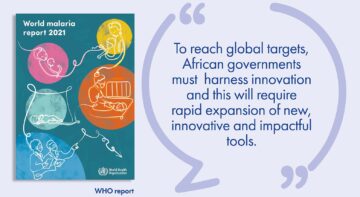Blogs

Malawi is among the top 15 countries with a high burden of Malaria worldwide. Every year, nearly 4 million people in Malawi are diagnosed with the disease, and 6,500 deaths due to Malaria are recorded. The use of insecticide-treated net (ITNs) otherwise known as bed nets is a major part of the strategy to control and prevent malaria transmission in the country. Bed nets work to prevent malaria transmission by protecting humans that sleep under them from mosquito bites. Bed nets are also treated with insecticides named pyrethroid that kill mosquitoes that come into contact with them.
Despite the demonstrable effectiveness of bed nets in reducing malaria transmission, there is evidence that many of the mosquito species responsible for malaria transmission in Malawi have become resistant to pyrethroid. This means that standard bed nets treated with pyrethroid have become less effective in killing those mosquito species. Recognising the resistance of various mosquito species to pyrethroid and the potential of such resistance to roll back gains made in the fight against Malaria, the government in collaboration with other stakeholders has started distributing bed nets treated with insecticides that are capable of killing pyrethroid-resistant mosquito species.
Bed nets treated with Interceptor G2 (IG2) are part of the new nets distributed in some parts of Malawi. IG2 treated bed nets combine pyrethroid with another insecticide called chlorfenapyr. While there is evidence that IG2 bed nets are better at killing pyrethroid-resistant mosquitoes compared to standard bed nets, there is no known locally generated evidence in Malawi on the efficacy of IG2 nets on An. funestus, the main mosquito species responsible for malaria transmission in Southern Malawi. To fill this knowledge gap, and more importantly to inform the distribution of effective bed nets to Malawians, Dr. Elizabeth Bandason who is based at the Malaria Alert of the College of Medicine is undertaking a study to test the efficacy of IG2 nets against pyrethroid-resistant An. funestus. Dr. Bandason’s study is supported through the Partnership for Increasing the Impact of Vector Control (PIIVeC), a project funded by the UK Global Challenges Research Fund and led by the Liverpool School of Tropical Medicine (LSTM).
This research is expected to provide evidence to inform the distribution of efficacious bed nets in Malawi as this is crucial in the fight against Malaria. The African Institute for Development Policy (AFIDEP) as the policy partner on this project will continue to update and engage policymakers and stakeholders with evidence from this study and other related studies to bring about the desired changes.
Policy brief: Evidence to Inform How New Bed Nets Can Be Used to Prevent Malaria in Malawi
Related Posts





